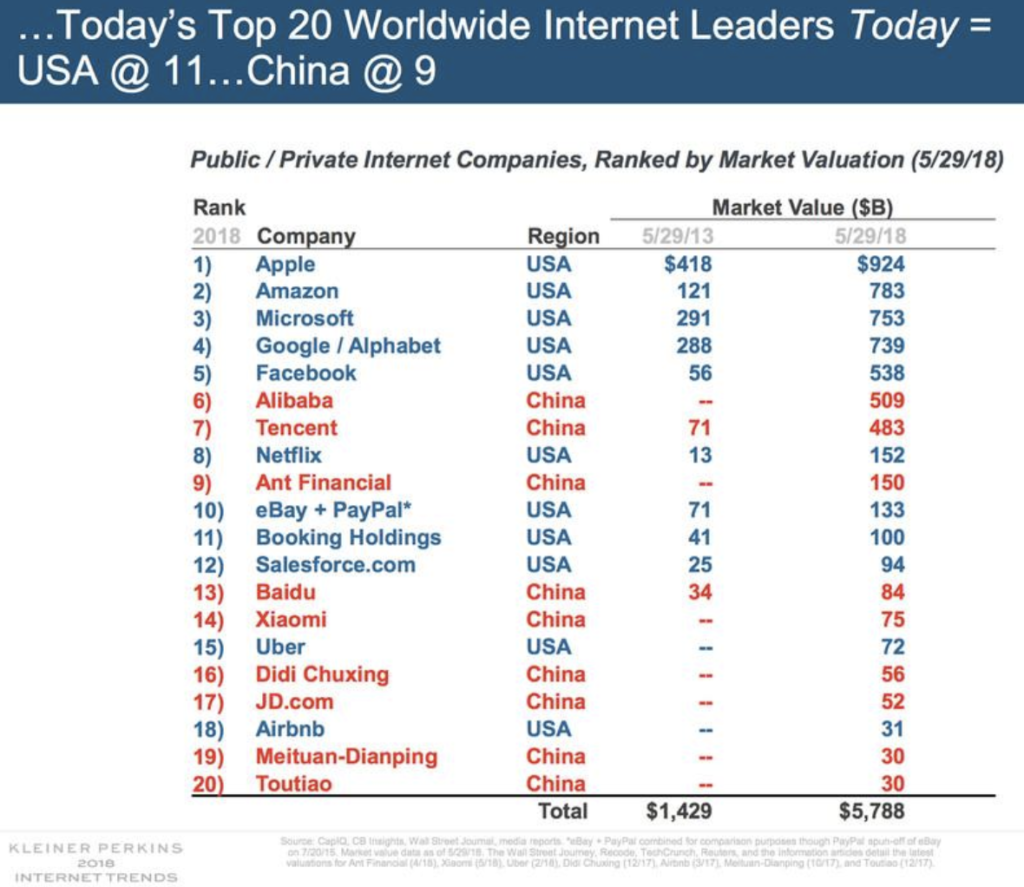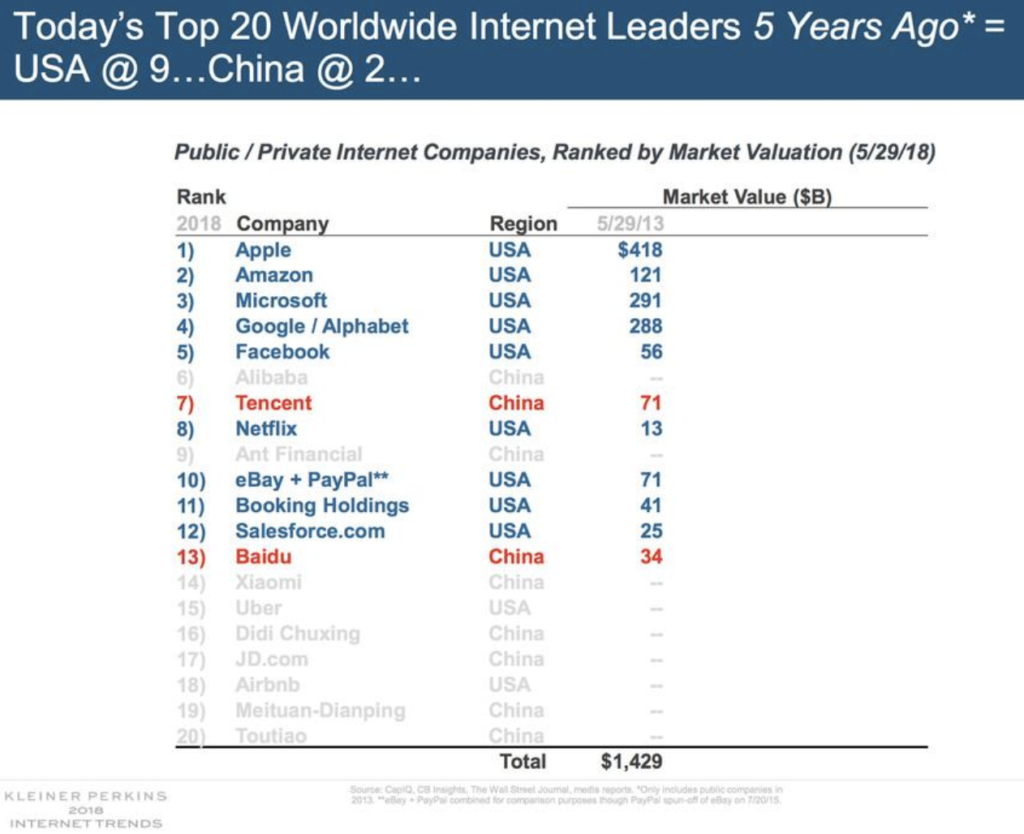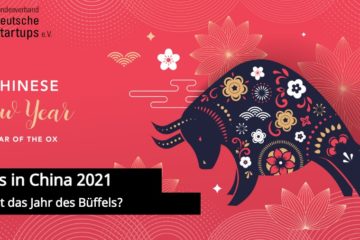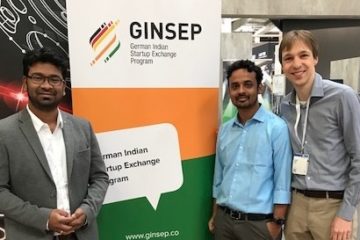Von Fabian von Heimburg, Mitgründer von Hotnest Technology Ltd.
Vom 17. bis zum 24. November 2018 werden wir im Rahmen der German China Week zum ersten mal eine Reise in das chinesische Startup-Ökosystem unternehmen. Im Vorfeld stellen wir euch hier die chinesische Startup-Landschaft einmal genauer vor und zeigen, warum sich eine Reise nach China unbedingt lohnt: Diesmal erklärt Fabian von Heimburg, wie China zu einem ernstzunehmenden Startup-Hotspot wurde und welche Learnings sich daraus für Europa ergeben.
„When I moved to China in 2014 to start my company, the country was still in the slow process of opening up its massive economy and developing its major foreign policy initiative, One Belt One Road. This aims to open up the economy by reviving the old Silk Road trade route, connecting Europe and China by land and sea, at a cost of $4-8 trillion.
The impact of China’s opening and development can be felt in every industry, especially the start-up and venture capital sectors. In 2014, only two of the world’s top 20 internet companies were from China. Today, that number has jumped to nine. The remaining 11 are American, and none are from Europe.

While American internet companies operate on a global scale, the nine Chinese companies still operate mostly in China. The next decade will see them go abroad along the New Silk Road and into South-East Asia. The share of Chinese internet companies dominating the globe will increase even more.
Europe on the other hand, after being dominated by America’s ecosystem for more than three decades, has now fallen behind even China when it comes to the most important area for the future of any developed region in the world: creating world-class, scalable internet companies, using the newest technologies such as platforms and artificial intelligence.

Being one of the few foreigners operating in China’s start-up ecosystem, I get visited by all kinds of European government agencies, big corporations, investment funds and entrepreneurs. I was struck recently when a participant proclaimed during one of my presentations: „Wow, China is already so advanced in the start-up sector – I still had the image of thousands of people riding on bikes in car-empty streets“.
Although it’s been more than 30 years since China resembled this, it’s still the predominant, albeit slowly changing, image of China among many Europeans. It exemplifies the lack of understanding, cooperation and trust between Europe and China. China’s opening up is actually a great opportunity for Europe to learn from past mistakes and leverage cooperation partners other than the US. If not, Europe will leave all the future’s major industries to China, the US and other emerging players.
Therefore, I propose three lessons that Europe should learn from the fast growth of China’s start-up ecosystem. To simplify matters, I will talk of Europe as a whole and resist going into detail about individual countries, but the lessons also hold true for most European countries on an individual level. In any case, Europe will need to unify to stay relevant in a multilateral world.
1. Europe needs to properly finance its start-up ecosystem
In 2017, $84 billion of venture capital investment was raised in the US, while China raised $59 billion. Europe raised only $17 billion – an increase on 2016’s $13 billion, nevertheless. The EU has roughly the same GDP as the US ($17 trillion and $19 trillion, respectively) and an even bigger population (508 million and 325 million, respectively), but it has less than a quarter of its venture capital financing (historically even less). There are clear lessons to be learned from China.
China’s ecosystem thrives on competition. Local governments compete for start-up registrations, from the provincial level to the city level to the district level. For example, entrepreneurs registering in Shanghai’s Jing’an district will compete with those in Yangpu district. The same goes for technology patents and tax revenue from technology start-ups. Local governments create entrepreneurship centres and give financing to venture capital firms and start-ups. On a regional level, the Yangtze River Delta area (Shanghai, Hangzhou, Suzhou etc.) competes with China’s new Bay area in the South (Shenzhen, Guangzhou, Zhuhai etc.).
Local governments will finance up to 20% of a venture capital fund’s fundraising, and create tax benefits to incentivize private investors to put their money in start-ups. This system of intense competition of government actors, as well as the creation of a clear incentive structure for private funds and corporations to invest in start-ups, does not exist in Europe. European governments’ lack of internal competition and start-up funding, as well as rigid tax laws, hold private funds and corporations back from investing in this industry.
2. Europe needs to create dominant players that support the local ecosystem
While America has Facebook, Amazon, Netflix and Google, China has Baidu, Alibaba and Tencent. China’s so-called BAT are invested in 30% of the top Chinese start-ups, and they also count for the majority of exits. They help other players grow, both through synergies and funding. The next wave of top start-ups in China, including Meituan (food delivery) and Didi Chuxing (transport), were partially possible because of connections with these players.
Most of Europe’s venture capital funding and start-ups come from the US. None of the world’s top 20 internet companies are from Europe. The most popular social network in Europe is Facebook, the most popular search engine is Google and the most popular e-commerce site is Amazon. These players have little interest in creating a long-lasting local ecosystem in Europe.
Their main interest is to conquer the market and gather revenues and data from the users. US tech companies use Europe as an additional easy-to-access massive market, but in the end, most of the benefits naturally go back to the US. Europe needs to learn from China and strategically promote local players to compete with other ecosystems.
3. Develop a clear industrial policy for the digital sector
In 2016’s 13th Five-Year Plan, China put AI research and development in sixth place on its national strategic agenda. China currently already competes for the global top spot in AI research and AI companies. China’s government also made the decision to limit the access that foreign companies have to its internet market. The result was that China was able to build its own ecosystem, which has now become one of the engines of internet and start-up innovation.
Europe also has plenty of restrictive market policies – try entering some of Europe’s largest markets as a foreign carmaker. Airbus and Boeing are state-created duopolies. Europe’s agricultural sector, despite massive inefficiencies, is still heavily subsidized. There are plenty of examples of strategic sector policy.
But in the most important area – digitalization and the internet, which crosses all industries from washing machines to cars – European governments have decided to let US companies fully access and dominate the European ecosystem. Europe can take a different route from China, but if it wants to stay relevant in the future, it has to develop a strong and unified industrial policy for its digital sector that promotes local financing and start-ups.
I acknowledge that China and the US have the advantage of a massive unified market, which Europe lacks given that it is not a single country. But Europe therefore needs to integrate even further, and be even more flexible and nimble than these countries, if it wants to stay relevant in the future. Europe’s biggest opportunities lie in its many B2B, smart manufacturing, IoT and artificial intelligence companies, but also in platforms that have not yet come close to reaching their potential.
In the new multilateral world order, in which China, Europe and the US coexist as advanced ecosystems each with their respective strengths, Europe should finally acknowledge and embrace cooperation with China’s digital ecosystem, and apply China’s learnings to its own ecosystem. Entrepreneurs, venture capital funds and governments from both China and Europe would benefit from forming a deeper connection.“
Bei der ersten German China Week erhalten vom 17. bis zum 24. November ausgewählte Startups, weitere Vertreter des deutschen Startup Ökosystems, etablierte Unternehmen und Politiker die Möglichkeit, eine intensive Woche in China zu erleben. Das German China Week-Programm umfasst eine Vielzahl informativer Treffen mit hochkarätigen Startups, den innovativsten Unternehmen und Venture Capitalists und ermöglicht einen breiten Einblick in die Entwicklung des chinesischen Startup-Ökosystems. Zur Anmeldung für die German China Week geht’s hier!
Der Beitrag erschien zuerst beim World Economic Forum.
INSIDE ist das Magazin des Bundesverbandes Deutsche Startups e.V. (Startup-Verband). Der Startup-Verband ist Repräsentant und Stimme der Startups in Deutschland und engagiert sich für gründerfreundliche Rahmenbedingungen. Im Dialog mit Entscheidungsträgern in der Politik erarbeitet er Vorschläge, die eine Kultur der Selbstständigkeit fördern und die Hürden für Unternehmensgründungen senken. Der Startup-Verband wirbt für innovatives Unternehmertum und trägt die Startup-Mentalität in die Gesellschaft. Als Netzwerk verbindet er Gründer, Startups und deren Freunde miteinander.
Wenn du an einer Mitgliedschaft im Startup-Verband interessiert bist, erfährst du hier etwas über die Vorteile einer Mitgliedschaft und kannst hier die Mitgliedschaft beantragen.


